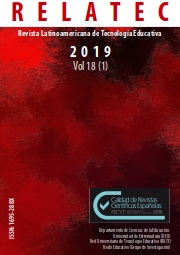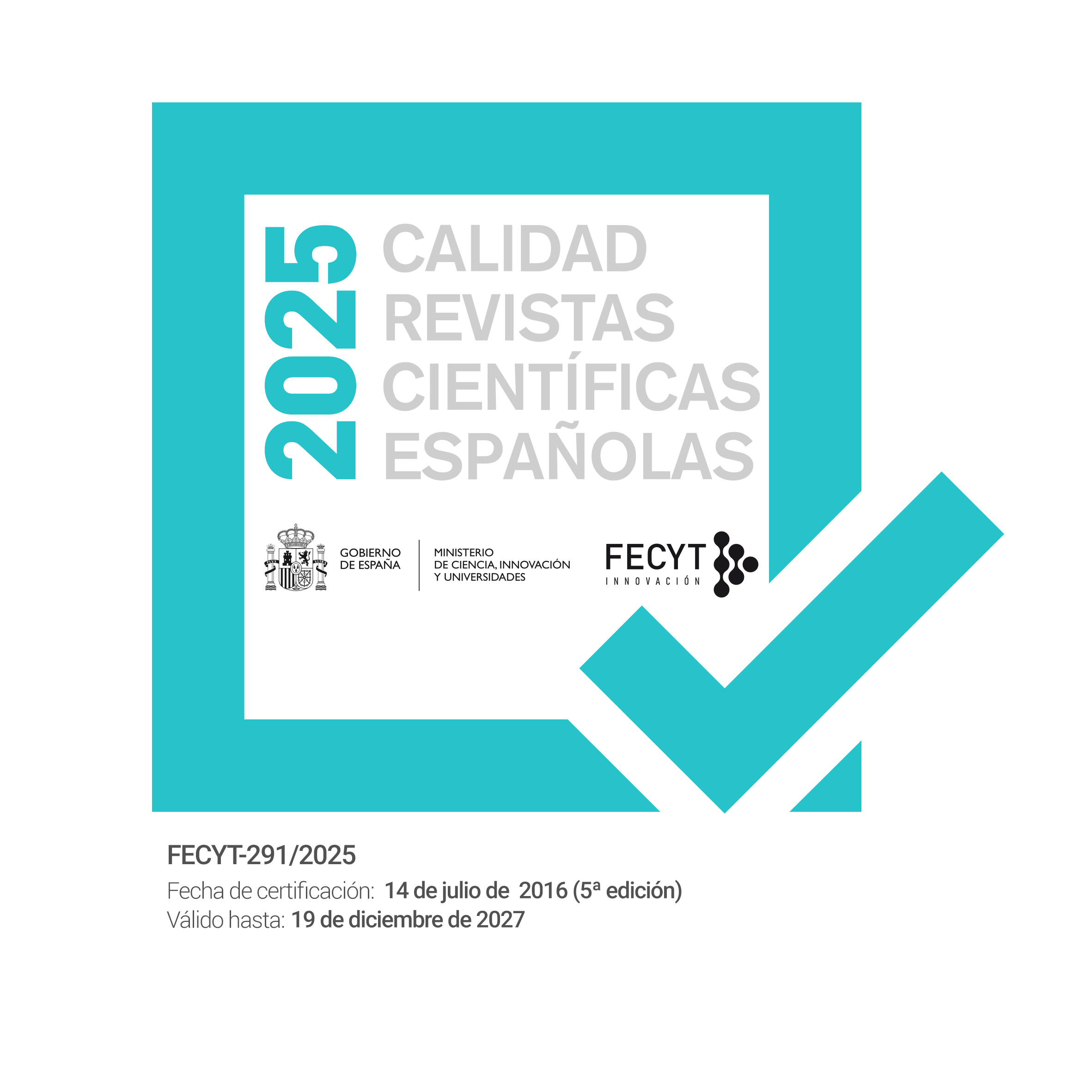Considerations for the introduction of Collaboration and Gamification in MOOCs
DOI:
https://doi.org/10.17398/1695-288X.18.1.163Keywords:
MOOC, Gamification, Collaboration, Training, Higher EducationAbstract
MOOCs (Massive Open Online Courses) have significantly disrupted Higher Education. Usually, these online courses offer universal access to learning, generating new challenges regarding the form they are taught and the pedagogical approaches used. In fact, despite the benefits of MOOCs in Higher Education (e.g. ubiquitous and free access to learning), these courses are frequently critized due to their content-based teaching models. Therefore, the application of strategies promoting active learning is presented as a potential technique to change these models and to improve the student participation and dropout rates. This paper reflects on the potential benefits of gamification and collaboration to enhance and motivate student involvement in MOOCs. To this end, a Design-Based Research (DBR) methodology has been applied aiming to show evidence of these pedagogical innovations in three MOOCs carried out by the University of Valladolid (Spain). The outcomes of this process show the potential benefits of gamification and collaboration in MOOCs when taking into account some concrete aspects during the design and/or co-design of the courses.
Downloads
References
Anderson, A., Huttenlocher, D., Kleinberg, J., y Leskovec, J. (2014). Engaging with massive online courses. In Proceedings of the 23rd International Conference on World wide web (pp. 687-698). ACM.
Anderson, T., y Shattuck, J. (2012). Design-based research: A decade of progress in education research? Educational researcher, 41(1), 16-25.https://doi.org/10.3102/0013189X11428813
Borrás-Gené, O., Martínez-Núñez, M., y Fidalgo-Blanco, Á. (2016). New Challenges for the Motivation and Learning in Engineering Education Using Gamification in MOOC. International Journal of Engineering Education, 32(1), 501-512
Castaño-Garrido, C., Garay, U., y Maiz, I. (2017). Factores de éxito académico en la integración de los MOOC en el aula universitaria. Revista Española de Pedagogía, 75(266), 65-82. https://doi.org/10.22550/REP75-1-2017-04
Claros, I., Echeverría, L., Garmendía, A., y Cobos, R. (2014). Towards a Collaborative Pedagogical Model in MOOCs. In Global Engineering Education Conference (EDUCON), IEEE (pp. 905-911). Estambul, Turquía. https://doi.org/10.1109/EDUCON.2014.6826204
Echeverría Rodríguez, L. (2017). Una propuesta de una plataforma de aprendizaje basada en escenarios colaborativos para la realización de experiencias de aprendizaje mixto con soporte a la
investigación. Tesis Doctoral. Universidad Autónoma de Madrid.
Fidalgo, Á., Sein-Echaluce, M. L., y García Peñalvo, F. J. (2013). MOOC cooperativo. Una integración entre cMOOC y xMOOC. En Á. Fidalgo Blanco, y M. L. Sein-Echaluce (Eds.), Actas del II Congreso Internacional sobre Aprendizaje, Innovación y Competitividad, CINAIC (pp. 481-486). Madrid: Universidad Politécnica de Madrid. Recuperado a partir de http://goo.gl/oxA06L
García Aretio, L. (2017). Los MOOC están muy vivos. Respuestas a algunas preguntas. RIED. Revista Iberoamericana de Educación a Distancia, 20(1), 9-27. https://doi.org/10.5944/roed.20.1.17488
García-Sastre, S., Idrissi-Cao, M., Ortega-Arranz, A., y Gómez-Sánchez, E. (2018). Uso de la colaboración y la gamificación en MOOC: un análisis exploratorio. RIED. Revista Iberoamericana de Educación a Distancia, 21(2), 263-283.
García-Sastre, S., Idrissi-Cao, M., Ortega-Arranz, A., Muñoz-Cristóbal, J. A., y Gómez-Sánchez, E. (2017). Marco para el Análisis de la Colaboración y la Gamificación en MOOC. Actas de la Fifth European MOOCs Stakeholders Summit, eMOOCs 2017 (pp. 62-71) Madrid, España. Recuperado a partir de http://goo.gl/bAx7Gn
González, C. S., Collazos, C. A., y García, R. (2016). Desafío en el diseño de MOOCs: incorporación de aspectos para la colaboración y la gamificación. RED. Revista de Educación a Distancia, 48(7), 1-23. https://doi.org/10.6018/red/48/7
Little, G. (2013). Massively Open? The Journal of Academic Librarianship, 39(3), 308-309. https://doi.org/10.1016/j.acalib.2013.03.004
McKenney, S. (2001). Computer-Based Support for Science Education Materials Developers in Africa: Exploring Potentials. Tesis doctoral. University of Twente, Enschede, Países Bajos.
Manathunga, K., y Hernández-Leo, D. (2016). PyramidApp: scalable method enabling collaboration in the classroom. In K. Verbert, M. Sharples, y T. Klobucar (Eds.), Adaptive and adaptable learning: In Proceedings of the 11th European Conference on Technology Enhanced Learning, EC-TEL 2016 (pp. 422-427). Lyon, France. Heidelberg: Springer (LNCS, no. 9891). https://doi.org/10.1007/978-3-319-45153-4_37
Margaryan, A., Bianco, M., y Littlejohn, A. (2015). Instruccional Quality of Massive Open Online Courses (MOOCS). Computers & Education, 80, 77-83. https://doi.org/10.1016/j.compedu.2014.08.005
Morales, M., Amado-Salvatierra, H. R., Hernández, R., Pirker, J., y Gütl., Ch. (2016). A Practical Experience on the Use of Gamification in MOOC Courses as a Strategy to Increase Motivation. In Proceeding of the International Workshop on Learning Technology for Education in Cloud (pp. 139-149). Springer. https://doi.org/10.1007/978-3-319-42147-6_12
Ortega-Arranz, A., Er, E., Martínez-Monés, A., Asensio-Pérez, J. I., y Muñoz-Cristóbal, J. A. (2019). Understanding Student Behavior and Perceptions towards Earning Badges in a Gamified MOOC. Universal Access in the Information Society (aceptado).
Ortega-Arranz, A., Kalz, M., y Martínez-Monés, A. (2018). Creating Engaging Experiences in MOOCs through In-Course Redeemable Rewards. In Proceedings of the 2018 Global Engineering Education Conference, EDUCON 2018 (pp. 1875-1882).
Ortega-Arranz, A., Sanz-Martínez, L., Álvarez- Álvarez, S., Muñoz-Cristóbal, J. A., Bote-Lorenzo, M. L.,
Martínez-Monés, A., y Dimitriadis, Y. (2017). From low-scale to collaborative, gamified and massive-scale courses: redesigning a MOOC. In Proceedings of the 5th European MOOCs Stakeholders Summit, eMOOCS 2017 (pp. 77-87). Springer, Cham. https://doi.org/10.1007/978-3-319-59044-8_9
Plomp, T. (2013). Educational design research: An introduction. Educational design research, 11-50.
Plomp, T., y Nieveen, N. M. (2010). An introduction to educational design research. In Proceedings of the seminar conducted at the East China Normal University, 2007. Shangai (PR China). Stiching Leerplan Ontwikkeling (SLO), Enschede.
Ramírez-Donoso, L., Rojas-Riethmuller J. S., Pérez-Sanagustín, M., Neyem, A., y Alario-Hoyos, C. (2017). MyMOOCSpace: A cloud-based mobile system to support effective collaboration in higher education online courses. Computer Applications in Engineering Education, 25(6), 910-926. https://doi.org/10.1002/cae.21843
Reeves, T. C. (2000). Enhancing the Worth of Instructional Technology Research through “Design Experiments” and other Developmental Strategies. Recuperado a partir de http://it.coe.uga.edu/~treeves/AERA-2000Reeves.pdf
Reeves, T. C. (2006). Design Research from a Technology Perspective. En Van den Akker, J., Gravemeijer, K., McKenney, S., y Nieveen, N. (Eds.). Educational Design Research. Londres: Routledge.
Ruipérez-Valiente, J. A., Muñoz-Merino, P. J., y Delgado Kloos, C. (2017). Detecting and Clustering Students by their Gamification Behavior with Badges: A Case Study in Engineering Education. International Journal of Engineering Education, 33(2-B), 816-830.
Sanz-Martínez, L., Martínez-Monés, A., Bote-Lorenzo, M., L., Muñoz-Cristóbal, J. A., y Dimitriadis, Y. (2017). Automatic group formation in a MOOC based on students’ activity criteria. Actas de la 12th European Conference on Technology Enhanced Learning, EC-TEL 2017 (pp.179-193) Tallín (Estonia). Springer,
Cham. https://doi.org/10.1007/978-3-319-66610-5_14
Teixeira, A., García-Cabot, A., García-López, E., Mota, J., y de-Marcos, L. (2016). A new competence-based approach for personalizing MOOCs in a mobile collaborative and networked environment. RIED. Revista Iberoamericana de Educación a Distancia, 19(1), 143-160. https://doi.org/10.5944/ried.19.1.14578
Valverde-Berrocoso, J. (2016). La investigación en Tecnología Educativa y las nuevas ecologías del aprendizaje: Design-Based Research (DBR) como enfoque metodológico. RIITE. Revista Interuniversitaria de Investigación en Tecnología Educativa, 0, 60-73. https://doi.org/10.6018/riite/2016/257931
Van den Akker, J., Branch, R. M., Gustafson, K., Nieveen, N., y Plomp, T. (1999). Design Approaches and Tools in Education and Training. Dordrecht: Springer. https://doi.org/10.1007/978-94-011-4255-7
Downloads
Published
Issue
Section
License
Authors who publish in this journal accept the following conditions:
1. The Author retains copyright in the article. Upon acceptance of the article, the author shall grant to the Publisher the right of first publication of the article. with the dcoument registered with the Creative Commons Attribution-NonCommercial-NoDerivative 4.0 International (CC BY-NC-ND) license, which allows to third parties to use what is published whenever they mention the authorship of the work and the first publication in this journal.
2. Authors can make other independent and additional contractual agreements for the non-exclusive distribution of the article published in this journal (eg, include it in an institutional repository or publish it in a book) provided they clearly indicate that the work was published for the first time in this journal.
3. Authors are allowed and recommended to publish their work on the Internet (for example on institutional or personal pages) before and during the review and publication process, as it can lead to productive exchanges and a greater and faster diffusion of published work (see The Effect of Open Access).









